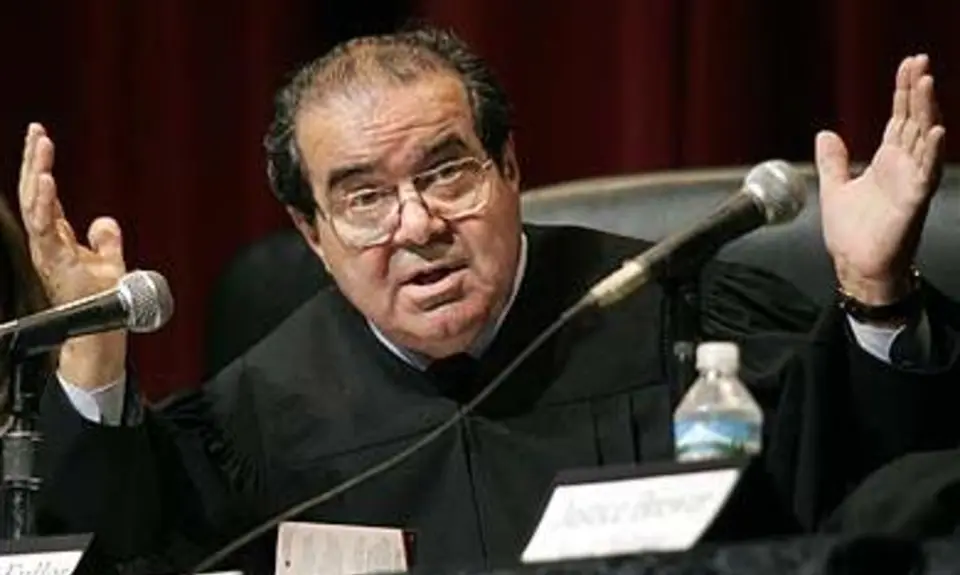Justice Antonin Scalia had some interesting things to say at a speech yesterday to Georgetown University law students. The Washington Post reports on Scalia’s response to a question about minority rights:
But a question about whether courts have a responsibility to protect minorities that cannot win rights through the democratic process — the issue that animated the court’s landmark decision this year on same-sex marriage — brought a caustic response.
“You either believe in a democracy or you don’t,” Scalia said. “You talk about minorities — what minorities deserve protection?”
Religious minorities are protected by the First Amendment, Scalia said, and so are political minorities. But beyond that, he asked rhetorically, what empowers Supreme Court justices to expand the list.
“It’s up to me to decide deserving minorities?” Scalia asked. “What about pederasts? What about child abusers? So should I on the Supreme Court [say] this is a deserving minority. Nobody loves them.”
“No, if you believe in democracy, you should put it to the people,” he said.
No, Justice Scalia, if you believe in democracy governed by the Bill of Rights, people have rights that cannot be violated by majorities. The majesty of the Equal Protection Clause is that it was intentionally written broadly, rather than being limited to certain people. And it doesn’t have a clause saying “except for gay people.”
In addition, given Scalia’s caustic dissents in cases recognizing the constitutional equality and basic humanity of gay people, it is hardly a surprise that he answered a question implicating LGBT equality by dragging in pederasts and child abusers. From a legal perspective, can he really not see any difference between protecting innocent but unpopular people who aren’t harming anyone, and policies designed to prevent adults from committing acts of violence against unwilling children?
Legal comparisons aside, why bring up child molesters at all? For far too long, far right extremists have long peddled the pernicious lie that gay people are inherently a threat to children. Why did Scalia’s mind go there? Surely there are other categories of people he could have mentioned to make the same point.
Scalia’s comment about believing in a democracy also has to be taken in context: He voted with the 5-4 majorities in Citizens United (opening up our elections to unlimited corporate and special-interest money) and Shelby County (gutting the heart of the Voting Rights Act and empowering those who seek to win elections by disenfranchising Americans who might vote against them). And, of course, he was with the 5-4 majority in the ultimate judicial middle finger to democracy, Bush v. Gore.
At the heart of our democracy is the right to vote in free and fair elections. That means elections without barriers designed to keep the “wrong” people from voting, and elections where the voices of ordinary people are not drowned out by a tiny sliver of phenomenally wealthy and powerful interests. That is what a healthy democracy looks like, and it makes Scalia’s comments quite ironic.
